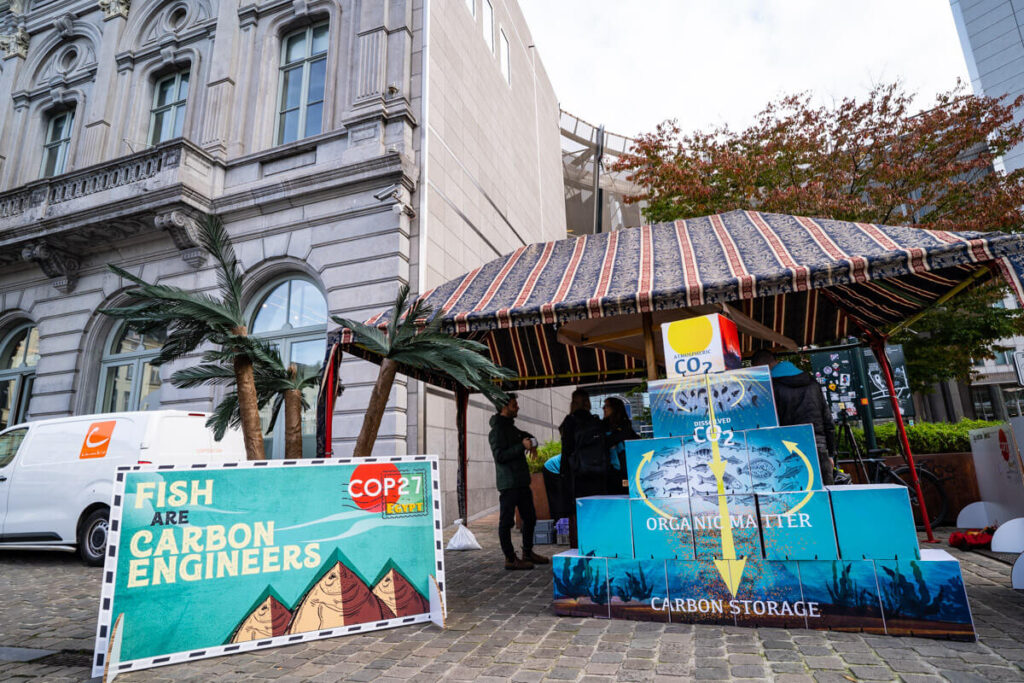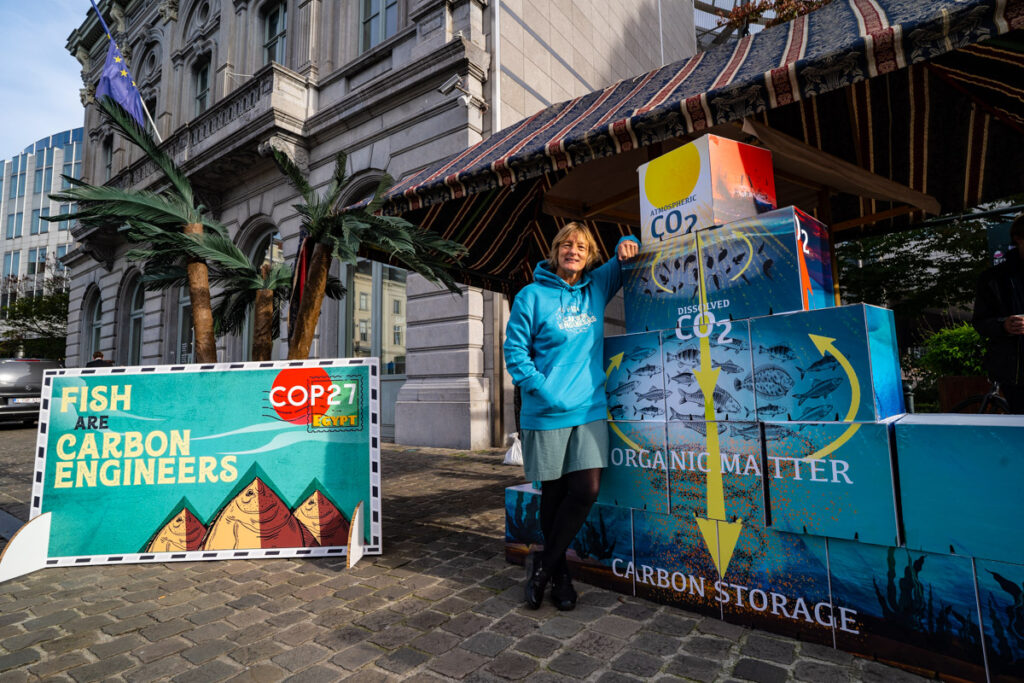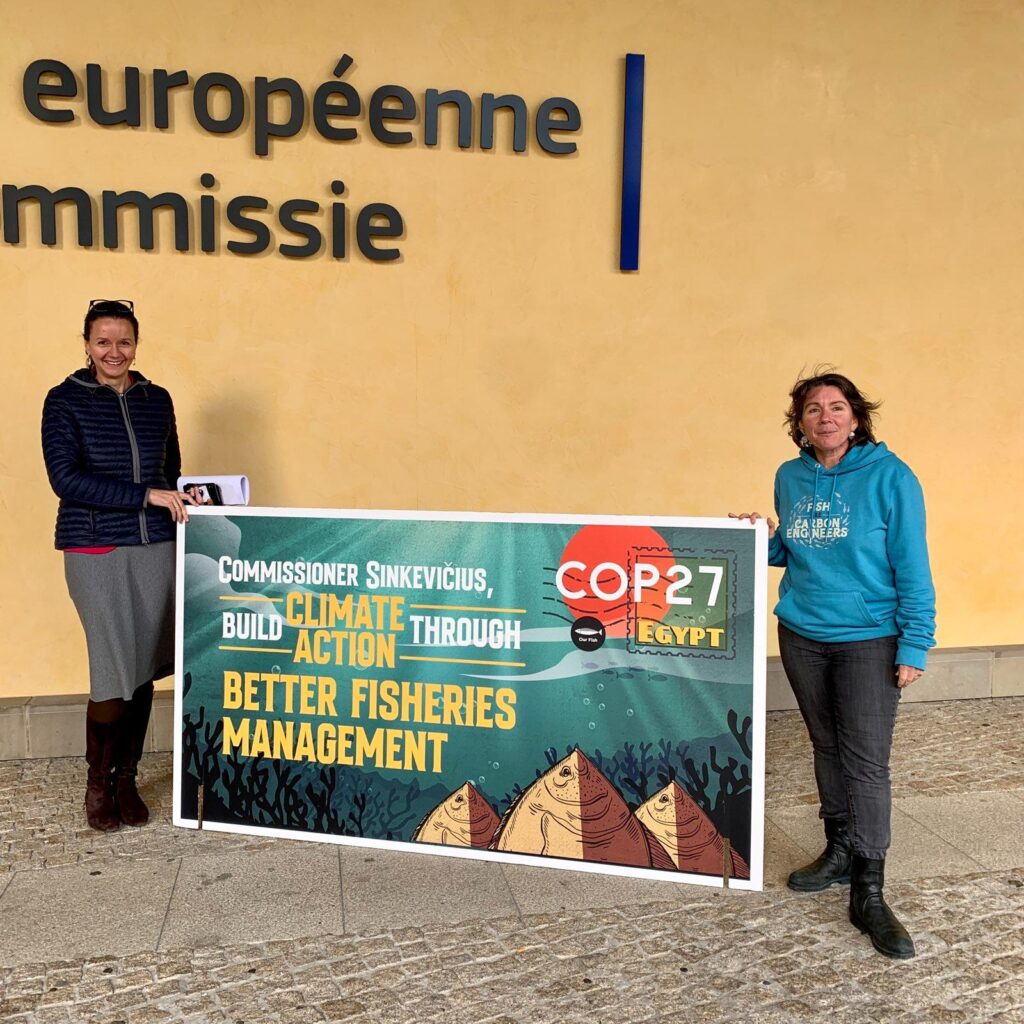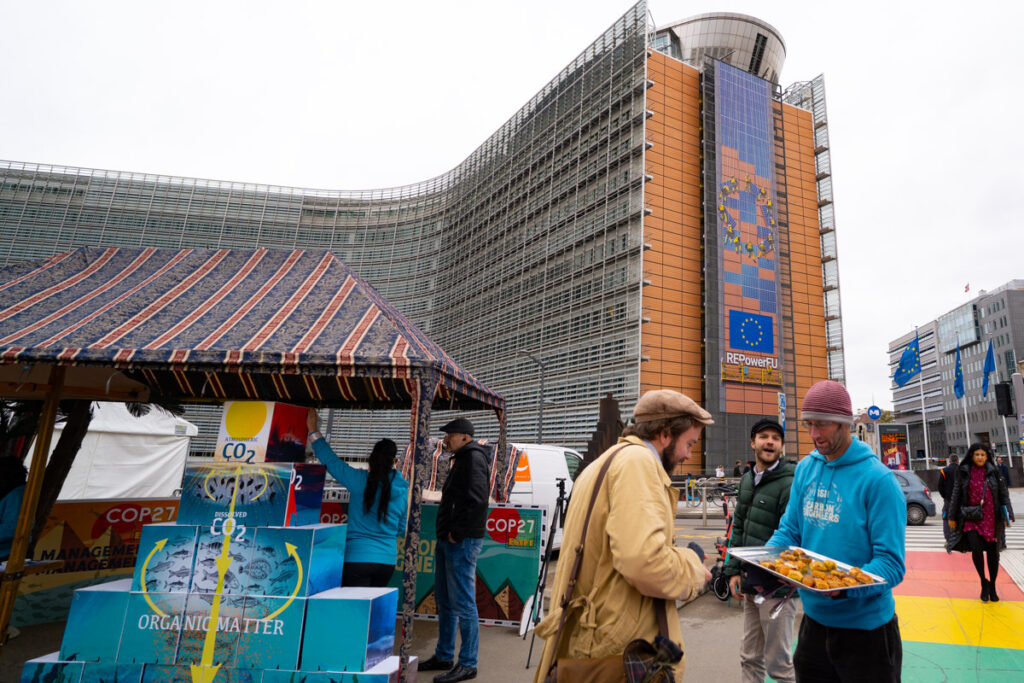
Our fish at European Parliament, ahead of launch of Fish are Carbon Engineers paper at COP27 in Egypt.
Brussels, 9 November 2022:- As the COP27 summit meeting kicked off this week in Egypt, Members of the European Parliament, EU Commission officials and passersby were invited to decipher a large pyramid puzzle in Brussels, to unlock the crucial role that fish play as the ocean’s carbon engineers – while being plied with baklava and Egyptian spiced coffee.
The puzzle, which appeared outside both the European Parliament and the European Commission, challenged players to construct a pyramid representing the ocean biological pump, before inviting them to send a COP27 postcard to European Commissioner for the Environment, Oceans and Fisheries Virginijus Sinkevičius, urging him to deliver effective fisheries management as good carbon management. A briefing paper Fish are Carbon Engineers, will be presented during a November 11 official side event at the COP27 Ocean Pavilion in Sharm El-Sheikh (details for live streaming here, contact press@our.fish for more details).

MEP Grace O’Sullivan with Our Fish at the European Parliament, Nov 2022, ahead of launch of Fish are Carbon Engineers paper at COP27 in Egypt.
“With COP27 kicking off in Egypt this week, we’ve challenged EU policymakers to unlock the ocean’s carbon puzzle and grow understanding of the crucial role of fish and the ocean in protecting our planet’s climate”, said Our Fish Programme Director Rebecca Hubbard. “Fish, like whales and plankton, are carbon engineers of the ocean biological pump, the system constantly at work capturing and storing excess carbon from the atmosphere.”

Carmen Preising, Deputy Head of Cabinet to the European Commissioner for Environment, Oceans and Fisheries receives the COP27 Postcard from Our Fish Programme Director Rebecca Hubbard at the European Commission, Brussels, 8 November 2022.
The biological pump is the engine of the ocean, fuelled by billions of fish and marine animals that interact daily as components of a complex system, providing the means to capture excess carbon from the atmosphere, and to retain it. The carbon stored by the top layer of marine sediments due to this process is nearly double the amount contained in all terrestrial surface soils. However, the annual extraction of around 80 million tonnes of fish worldwide removes significant amounts of “blue carbon” from the ocean, releasing it into the atmosphere. This has almost halved fish’s biogeochemical impact on the ocean in the last century, significantly weakening its capacity for climate mitigation.
“The EU must grasp that good fisheries management is good carbon management – it is a practical and critical climate solution. Good fisheries management means not taking too many fish out of the ocean; banning practices which damage the seabed and breakdown the food web, and decarbonising the fishing fleet”, said Hubbard.

Our fish at European Institutions, 7-8 November 2022, ahead of launch of Fish are Carbon Engineers paper at COP27 in Egypt.
“Regardless of what happens at COP27, the EU has the means and the power to take action on climate change by putting its fisheries on a pathway to becoming low-impact and low-carbon. This must include removing fuel tax subsidies through the Energy Taxation Directive review and a clear requirement for Ecosystem & Climate Impact Assessments of fishing activities in the Ocean Action Plan: good fisheries management is good carbon management”, concluded Hubbard.
Learn more in our Fish are Carbon Engineers briefing paper, which will be formally launched at COP27’s Ocean Pavilion on November 11.
Our Fish’s Bec Hubbard call on EU to deliver ocean action plan that minimises climate impact of fishing.
Our Fish’s Bec Hubbard speaks about how the EU can take climate action through better fisheries management, regardless of what happens at COP27.
ENDS
Contact: Dave Walsh, communications advisor, press@our.fish, +34 691 826 764
About Our Fish
Our Fish is working to end overfishing and restore a healthy ocean ecosystem.
By collaborating with others, and deploying robust evidence, we are calling for an end to overfishing as a critical and significant action to address the biodiversity and climate crisis.
